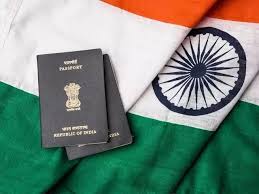
The Indian government has announced a critical deadline of April 27, 2026, for all citizens to register or update their birth certificates. Post this date, the birth certificate will become the primary document required to access essential services, including healthcare, education, passports, and property rights. This initiative, under the Registration of Births and Deaths (Amendment) Act, 2023, aims to streamline identity verification and address documentation gaps, particularly among marginalized communities.
Key Provisions of the Amendment Act:
- Mandatory Birth Certificate Requirement: From October 1, 2023, birth certificates are designated as the sole document for various services such as school admissions, issuance of driving licenses, voter list preparation, Aadhaar registration, marriage registration, and appointments in government jobs.
- Simplified Late Registration Process: Individuals without registered births, especially those unregistered for over 15 years, can now apply at local municipal or tehsil offices without requiring court intervention. Acceptable documents include school-leaving certificates, mark sheets, passports, ration cards, or Aadhaar cards.
- Establishment of National and State-Level Databases: The Act empowers the Registrar General of India to maintain a national database of registered births and deaths, with data shared by state-appointed Chief Registrars and local Registrars. This centralized system aims to improve the efficiency and transparency of public services and social benefits delivery through digital registration.
Implications of Missing the Deadline:
Failure to register by April 27, 2026, may result in significant challenges, including:
- Ineligibility for Educational Opportunities: Without a birth certificate, individuals may face denial of school and college admissions, limiting educational prospects.
- Restrictions on Travel and Employment: Obtaining passports and securing government employment will require a birth certificate, and its absence could hinder these opportunities.
- Property and Inheritance Issues: Legal claims to property ownership and inheritance may be challenged without proper birth documentation.
- Exclusion from Welfare Schemes: Access to various government welfare schemes and subsidies may be denied without a registered birth certificate.
Application Process:
To comply with the new regulations, citizens should:
- Visit Local Authorities: Approach your local municipal corporation or tehsil office to initiate the registration process.
- Prepare Necessary Documentation:
- Proof of Birth: Documents such as school-leaving certificates or 10th/12th-grade mark sheets.
- Address Proof: Valid proofs include Aadhaar cards or ration cards.
- Identity Proof: Acceptable forms include passports or voter IDs.
- Understand Fee Structure: Corrections made within 12 months of registration are free; nominal charges apply for older updates.
Urgency for the Elderly Population:
Reports indicate that approximately 75% of elderly individuals lack official birth records, placing them at significant risk of exclusion from essential services. It’s imperative for this demographic to act promptly to secure their rights and access to necessary services.
Government’s Rationale and Future Outlook:
The government’s initiative aims to create a unified and efficient system for identity verification, reducing bureaucratic hurdles and ensuring that all citizens have access to their rights and services. By establishing a centralized database, the government seeks to enhance transparency and streamline service delivery across various sectors.
Citizens are encouraged to spread awareness about this critical deadline to prevent future administrative and legal challenges. For further details and updates, refer to official communications from the Ministry of Home Affairs and local administrative bodies.
Acting promptly will ensure that all individuals, especially those currently without proper documentation, can secure their rights and access essential services without disruption.










